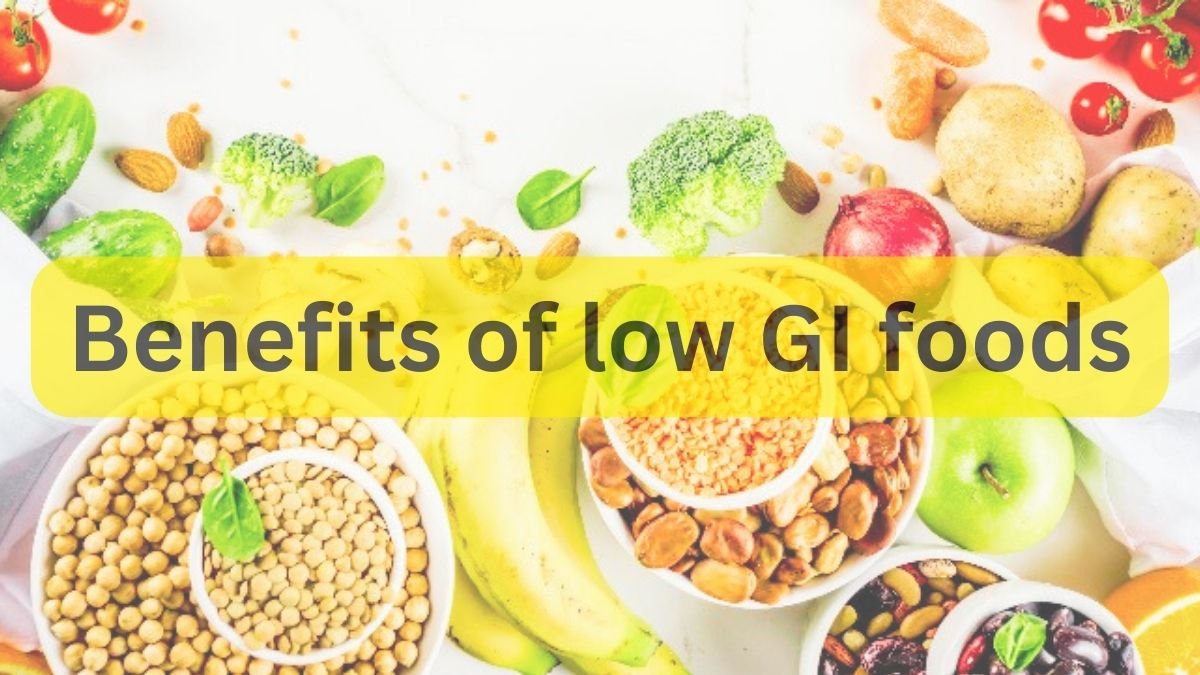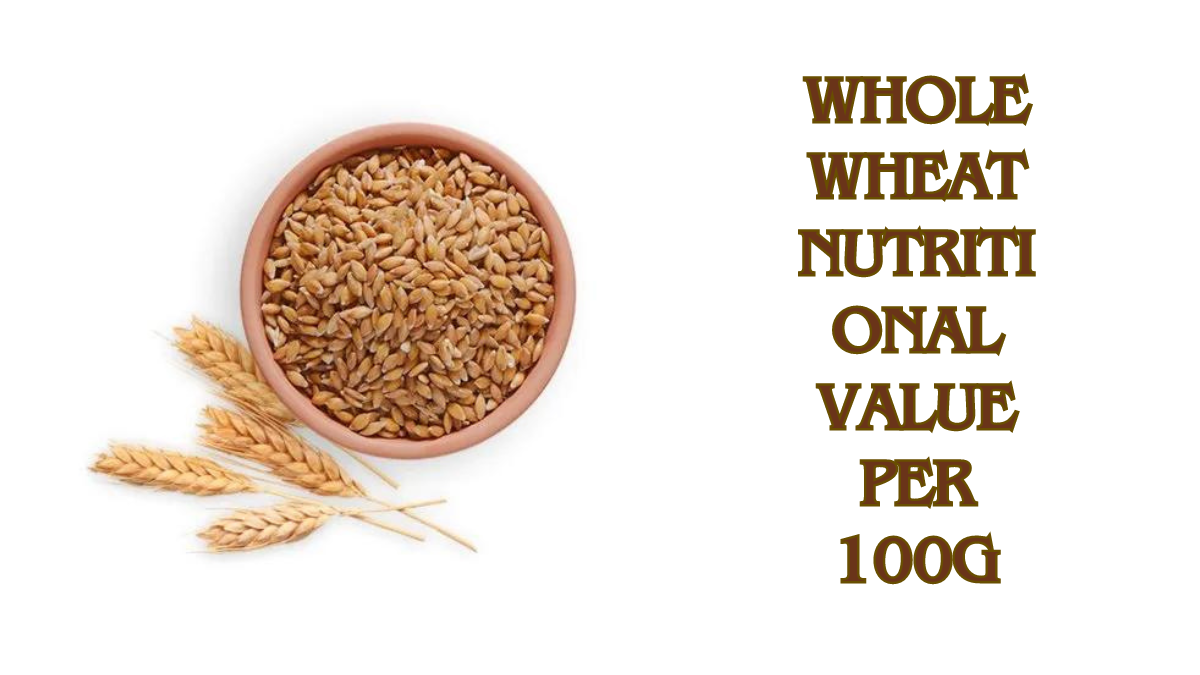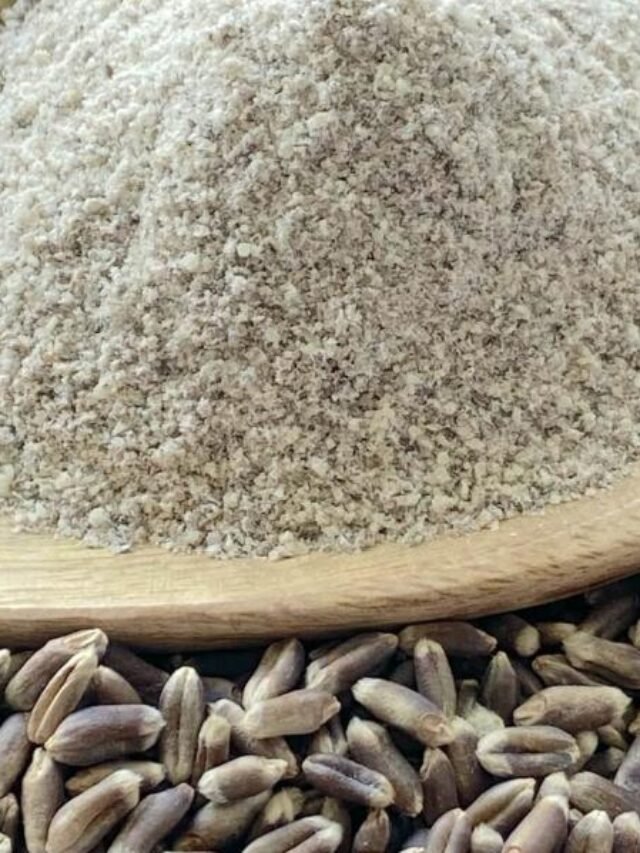Foods with low glycemic index (GI) provide many benefits, mainly related to managing blood sugar levels, promoting sustained energy, and supporting overall health. Here are some benefits of including low GI foods in your diet:
- Balanced blood sugar levels: Low GI foods are digested and absorbed more slowly, leading to a gradual rise in blood sugar levels. This slower uptake of glucose helps keep blood sugar levels more stable, preventing rapid spikes and crashes. It is especially beneficial for individuals with diabetes or those aiming to manage insulin resistance.
- Sustained Energy: Low GI foods provide a steady and sustained release of energy. They help keep you satiated for longer, prevent sudden hunger pangs and provide consistent energy levels throughout the day.
- Better weight management: Low GI foods can aid weight management by reducing hunger and promoting a feeling of satiety, resulting in reduced total calorie intake. They can also help curb cravings for unhealthy, high-sugar foods.
- Enhanced Sports Performance: Low GI foods can be beneficial for athletes because they provide a more sustained release of energy during workouts or competitions. They support stamina and can help maintain energy levels throughout physical activities.
- Heart Health: Low GI diets are linked to improved heart health. They may help reduce the risk of heart disease by controlling blood sugar levels and reducing the chance of developing insulin resistance, obesity and high cholesterol levels.
- Better digestive health: Foods with a lower glycemic index often contain more dietary fiber, which promotes better digestion and gut health. High-fiber foods can help prevent constipation and support a healthy digestive system.
- Lower risk of chronic diseases: Including low GI foods in your diet may reduce the risk of developing chronic diseases like type 2 diabetes, certain cancers and metabolic syndrome due to their positive effects on blood sugar regulation and overall health.
Remember, when focusing on low GI foods, maintaining a balanced diet that includes a variety of nutrient-rich foods is essential for optimal health. Including fruits, vegetables, whole grains, lean proteins and healthy fats in your diet can contribute to a complete and nutritious diet.
Buy Health Atta – Click Here
Benefits of low GI foods FAQ
1. What are low GI foods?
Low GI foods are those that have a low impact on blood sugar levels because they are digested and absorbed slowly, causing a gradual rise in blood sugar.
2. How do low GI foods benefit health?
Blood sugar control: They help keep blood sugar levels more stable, which is especially beneficial for individuals with diabetes or those aiming to manage insulin resistance.
Sustained Energy: Low GI foods provide a sustained release of energy, preventing sudden surges and crashes, and keeping you satiated for longer.
Weight management: They reduce appetite, promote feelings of satiety, and may aid weight management by potentially reducing overall calorie intake.
Heart health: Low GI diets have been linked to improved heart health by controlling blood sugar levels and reducing the risk of heart disease.
3. Are low GI foods beneficial for athletes?
Yes, low GI foods can be beneficial for athletes as they provide sustained energy, increase stamina and maintain energy levels during workouts.
4. How do low GI foods impact digestive health?
Low GI foods, which often contain more dietary fiber, aid in better digestion, prevent constipation and promote a healthy digestive system.
5. Can low GI foods help in reducing the risk of chronic diseases?
Including low GI foods in the diet may help reduce the risk of developing chronic diseases such as type 2 diabetes, certain cancers and metabolic syndrome due to their positive effects on blood sugar regulation and overall health.
6. What are some examples of low GI foods?
Examples include legumes (lentils, chickpeas), non-starchy vegetables (broccoli, spinach), most fruits (berries, apples), whole grains (oats, quinoa), nuts/seeds (almonds, chia seeds), and protein (lean meats ) Are included. , Tofu).
7. Are all low GI foods healthy?
While low GI foods are healthier choices, it is important to consider the overall nutritional value. A balanced diet with a variety of nutrient-rich foods is important for optimal health.
Incorporating low GI foods into a complete diet can provide many health benefits and contribute to improved overall well-being. It is advisable to consult a health care professional or registered dietitian for personalized advice on dietary recommendations.




